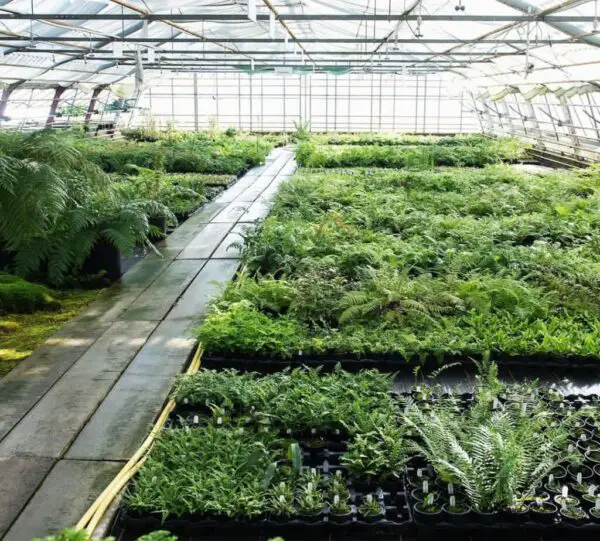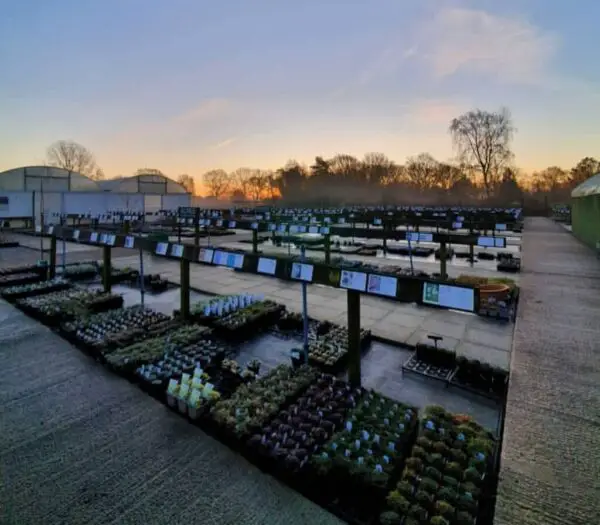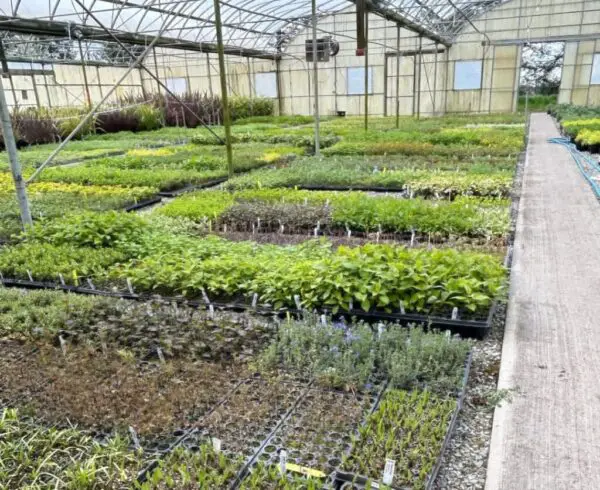Feel free to share!
Plant Nursery Insurance is an essential safety net for business owners in the horticulture industry. Whether you’re running a small garden center or a large-scale nursery operation, the risks involved—from unpredictable weather and plant diseases to theft, fire, and liability claims—can threaten your livelihood overnight.
Table of Contents 👈 Tap Here
In an industry so deeply rooted in the natural environment, where even a slight shift in temperature or an unexpected storm can destroy years of cultivation, having the right Insurance is not only a wise choice, but also a requirement for businesses.
This comprehensive guide brings you 20 expert tips to help you navigate the complex world of plant nursery insurance. These tips are designed to protect your investment, ensure business continuity, and offer peace of mind in the face of unforeseen events.
From choosing the right policy to understanding common coverage gaps, this article is your go-to resource for securing your nursery against both everyday mishaps and major disasters. Whether you’re new to the business or a seasoned grower, the insights shared here will empower you to make informed decisions and fortify your operations for long-term success.
II. Understanding Plant Nursery Insurance

1. What Is Plant Nursery Insurance?
Plant nursery insurance is a specialized policy designed to protect nursery businesses from a wide range of risks. It covers assets like greenhouses, inventory, staff, and even plants themselves. Having proper insurance ensures your operations can recover quickly from unexpected disruptions, whether natural or manmade.
2. Why It’s Crucial for Nursery Owners
Plant nurseries face diverse threats including crop loss, theft, storm damage, and customer lawsuits. A single occurrence without insurance could lead to financial disaster. A tailored policy helps mitigate these risks, ensuring the continuity of your business and providing peace of mind to focus on growing your nursery.
3. Types of Insurance Coverage to Consider
A comprehensive nursery insurance policy may include general liability, commercial property, product liability, workers’ compensation, and business interruption. Crop-specific coverage may also be essential depending on what you grow. Understanding the types of insurance available is the first step toward building strong protection for your nursery.
III. 20 Expert Tips for Insurance Protection

Policy Selection & Coverage
4. Assess Specific Nursery Risks Before Choosing a Policy
Every nursery is different—some face high storm risk, others rely on expensive irrigation systems. Evaluate your unique exposures before selecting insurance. Identifying potential threats helps you avoid underinsurance and ensures your policy aligns closely with the specific operations and structure of your plant nursery.
5. Bundle Policies for Better Rates and Comprehensive Coverage
Many insurance providers offer bundled packages that combine liability, property, and employee coverage. Bundling not only simplifies management but can also lead to significant savings. Discuss package deals with your broker to ensure you’re getting the best deal without compromising coverage.
6. Work With a Broker Who Specializes in Agriculture or Nurseries
A general insurance agent may overlook specific risks unique to horticulture. Choose a broker who understands agricultural businesses. They can tailor your policy with accurate valuations, recommend appropriate riders, and ensure no essential protections are missed in your insurance plan.
7. Recognise the fine print regarding exclusions and coverage limits.
Read the details before a claim is made.Carefully review coverage limits, deductibles, and exclusions. Some policies may not cover certain plants, tools, or weather events. Being informed helps you avoid nasty surprises and ensures you’re adequately covered in times of crisis.
Protecting Plants and Inventory

8.Purchase Crop Insurance for Plants Grown Outside
Plants grown outside are extremely susceptible to diseases, pests, and storms. For plants that are lost or damaged, crop insurance offers monetary compensation.This is especially important if your nursery relies heavily on field-grown plants that can’t be protected indoors during adverse weather conditions.
9. Use Inventory Management Tools to Track Losses
Digital inventory systems can track plant stock and values in real-time. In case of damage or theft, accurate records simplify the claims process and help you prove losses. This documentation also helps determine appropriate coverage limits when updating or buying a policy.
10. Document Plant Valuation Regularly for Accurate Claims
The value of your inventory fluctuates based on plant maturity and market trends. Regularly update your plant valuations, especially for high-value specimens. This ensures your insurance accurately reflects the worth of your assets and helps avoid disputes during claims settlement.
Property and Equipment Protection

11. Insure Greenhouses and Irrigation Systems Separately if Needed
Standard policies may not fully cover specialized structures like greenhouses or complex irrigation setups. Consider separate endorsements or add-ons to protect these assets. This ensures you’re reimbursed for the actual replacement cost rather than a generic building estimate.
12. Cover Machinery and Tools Against Theft or Damage
Your tools and machinery are essential for daily operations. Equipment insurance protects against loss or malfunction due to accidents or theft. Whether it’s a tractor or power sprayer, ensuring this gear is covered prevents work disruptions and saves costly replacement expenses.
13. Install Security Systems to Qualify for Lower Premiums
Nurseries that use robust security measures are frequently eligible for premium rebates from insurance companies.Installing surveillance cameras, alarms, and secure fencing not only deters theft but also shows your commitment to risk management, which insurers reward with better rates.
Employee and Liability Protection
14. Get Workers’ Compensation for All Employees and Seasonal Staff
Even if some staff are temporary or part-time, you’re still liable for workplace injuries .Medical costs and lost income for injured workers are covered by workers’ compensation. It also protects your nursery from lawsuits and ensures compliance with labor laws.
15. Include Product Liability for Soil, Seeds, or Pesticide Sales
If your nursery sells products like fertilizer, soil, or chemicals, you’re exposed to liability risks. Product liability coverage protects you if a customer is harmed or suffers damage from something you sold. It’s a must-have for nurseries with retail operations.
16. Ensure Safety Training and Documentation for Staff
A well-trained staff is your first line of defense against accidents and injuries. Provide regular safety training and keep detailed records. This not only reduces actual incidents but also strengthens your position in the event of a claim or insurance audit.
Natural Disaster Preparedness
17. Consider Flood, Fire, and Windstorm Riders Based on Location
Depending on your nursery’s location, standard policies may not cover events like flooding or hurricanes. Research your regional risks and purchase additional riders if necessary. Being proactive ensures you’re not left exposed when nature strikes.
18. Have a Disaster Recovery Plan to Support Insurance Claims
Develop a comprehensive disaster recovery plan that includes emergency procedures, contact lists, and backup inventory records. Insurers appreciate businesses that prepare. A solid plan can help expedite claims processing and reduce downtime after a major event.
Financial Planning & Legal Considerations
19. Review and Update Policies Annually as the Business Grows
Your business evolves—your insurance should too. Review your coverage each year or after major changes like expansion or new equipment purchases. Keeping policies current ensures you’re not overpaying or leaving new assets unprotected.
20. Keep All Receipts, Contracts, and Documentation Organized
Proper documentation is essential for filing accurate and speedy claims. Store digital and physical copies of receipts, purchase orders, and contracts. Organized records not only support your insurance needs but also help with tax reporting and business planning.
Insurance may not be the most exciting part of running a plant nursery, but it’s certainly one of the most important. With the right policies and proactive strategies, you can protect your investment, your staff, and your future. Use these expert tips to build a stronger, more resilient nursery today.
FAQs About Plant Nursery Insurance
1. What is plant nursery insurance?
Plant nursery insurance is a specialized policy designed to protect plant nurseries from various risks, such as property damage, theft, liability claims, and employee injuries. It helps safeguard your business operations, plants, equipment, and legal interests, ensuring your nursery stays financially stable even in unpredictable situations.
2. Why do I need plant nursery insurance for my business?
Having plant nursery insurance is essential because it protects you from potential losses due to fires, storms, vandalism, or lawsuits. Whether you grow plants, trees, or shrubs, this insurance helps cover repair costs, legal fees, or medical expenses, giving you peace of mind while managing your nursery.
3. What does plant nursery insurance typically cover?
Plant nursery insurance usually includes coverage for general liability, property damage, business interruption, workers’ compensation, and sometimes crop insurance. Each policy can be customized to fit your unique needs, ensuring your nursery is covered against both common and unexpected risks that could affect your income or operations.
4. Is plant nursery insurance required by law?
Plant nursery insurance may not be legally required in all states, but some aspects, like workers’ compensation or commercial auto insurance, may be mandated depending on your location and workforce size. Even if not required, it’s a smart investment to protect your assets and keep your business legally compliant.
5. How much does plant nursery insurance cost?
The cost of plant nursery insurance depends on several factors, such as the size of your nursery, types of plants grown, number of employees, and coverage limits. On average, small nurseries might pay a few hundred dollars annually, while larger operations may require a more comprehensive and costly policy.
6. Can plant nursery insurance cover extreme weather damage?
Yes, most plant nursery insurance policies can be tailored to include protection against extreme weather like hail, floods, and windstorms. This is particularly important if your plants are outdoors or in greenhouses, as a sudden weather event could cause significant damage and financial loss without adequate coverage.
7. Does plant nursery insurance include theft protection?
Plant nursery insurance typically offers theft protection, covering stolen equipment, tools, and even plants. Theft can severely impact your revenue, so having insurance ensures you can replace stolen items quickly and continue operating your business without experiencing a major setback or interruption in services.
8. What types of nurseries need plant nursery insurance?
All types of nurseries, including retail plant nurseries, wholesale growers, landscape nurseries, and greenhouse operations, benefit from plant nursery insurance. Regardless of your niche or business size, the risks are similar—damage, liability, and theft—making this insurance essential for anyone in the plant industry.
9. Can plant nursery insurance help during a lawsuit?
Absolutely. Plant nursery insurance includes liability coverage that helps with legal fees, court costs, and settlements if someone sues your business for injury or property damage. This is crucial in case a customer or visitor gets hurt on your property or claims damage caused by your plants or services.
10. How do I choose the best plant nursery insurance policy?
To choose the right plant nursery insurance, assess your specific risks, compare quotes from different providers, and consult with an insurance expert. Look for a policy that covers property, liability, crops, and employees. Tailored policies give better protection and help you avoid paying for unnecessary or insufficient coverage.
11. Is crop damage included in plant nursery insurance?
Some plant nursery insurance policies can be extended to include crop insurance, covering losses from pests, disease, or weather-related events. Since plants are your main asset, having coverage for crop damage helps you recover financially and ensures your nursery can continue operating smoothly after a setback.
12. Can I get plant nursery insurance if I work from home?
Indeed, plant nursery insurance is necessary for even home-based nurseries.Standard homeowners’ insurance may not cover business-related risks, so a separate nursery policy ensures your plants, tools, and operations are protected. This is especially important if customers visit your property or if you ship plants to customers.
13. What happens if I don’t have plant nursery insurance?
Without plant nursery insurance, you’ll be responsible for all losses out of pocket. A single lawsuit, fire, or theft could potentially shut down your business. Insurance acts as a safety net, reducing financial risks and keeping your nursery running even when unexpected events occur.
14. How frequently should I check my insurance policy for a plant nursery ?
You should review your plant nursery insurance policy at least once a year or whenever there are significant changes in your business. Expanding your nursery, adding new equipment, or hiring more staff are all reasons to update your coverage to ensure you’re fully protected against new risks.
15. Where can I buy plant nursery insurance?
Plant nursery insurance is available through commercial insurance brokers, agricultural insurers, or specialty providers who focus on horticulture businesses. Make sure to compare several policies, read customer reviews, and check provider credentials to find the best fit for your specific nursery needs.
